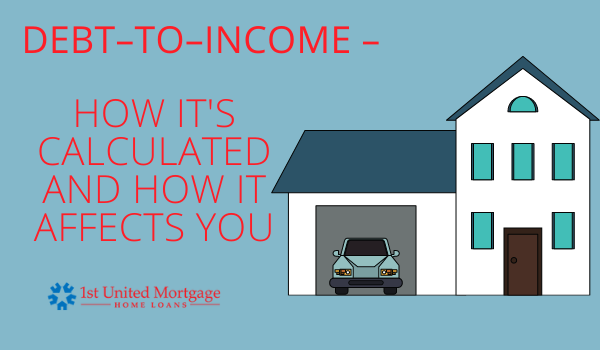
If you’re looking to get approved for a mortgage, your debt-to-income ratio can be just as important as your credit score. This numerical value lets you and lenders know whether you’re in a comfortable enough spot with your debt to apply for more responsibly. In short, lenders will utilize it to decide whether to take a risk on you.
Your DTI takes your income and compares it to the amount of money you owe every month, but calculating it yourself can also help you determine if buying a home is the right decision for you right now.
How To Calculate Your DTI
First, let’s look at how lenders categorize debt-to-income and how it can help you accurately understand your current financial health. There are two kinds of DTIs lenders will be looking for:
Front-End
This DTI only considers the percentage of your gross income that goes toward costs associated with housing, such as current mortgage payments, insurance, or property taxes.
Back-End
With this value, you get more of a full spectrum of your finances as it includes all monthly debt, in addition to housing, such as credit cards and student loans.
To calculate your DTI yourself, you’re going to take the total amount of your recurring monthly debt, divide it by your gross monthly income (any income before taxes or withholdings), and convert your answer into a percentage. For example:
$5,000 / $12,000 = 0.41 = 41%
To get a VA loan, though, you’ll only have to focus on your back-end DTI, which should be within 30-40% or less. Not to say that it will completely disqualify you, but the lower the better.
How Your DTI is Used by Lenders
When you decide to apply for a mortgage, lenders will not only take into account your DTI, but also evaluate your credit history and current credit score for them to determine how likely you are to repay the money they’ve loaned you.
However, if it all feels too intimidating, it’s important to note that not all debt is created equal to lenders. Basic debts, such as phone bills, groceries, or even health insurance, aren’t of much value when getting a snapshot of your overall financial health.
As long as you have a proven track record of good credit behaviors, such as paying your bills on time or paying off small balances right away, you have a great chance at making yourself attractive to creditors. So if you think you’re ready to achieve homeowner status, contact us to speak to a 1st United Mortgage broker to see how we can help you and your family’s dreams come true!
